A little over three years ago, CBS announced that we were getting a new Star Trek series, the first since the cancellation of Enterprise ten years previously. I still remember my excitement upon hearing the news and my mad speculation at what it could possibly be about. It’s crazy to think that the series, Star Trek Discovery, has already been around for over a year with the second season due to debut in January of 2019. My first watch through of the show was an interesting experience because, if I’m honest, I didn’t know what to make of it. There were things I liked and things I didn’t. Things I thought were well done and others that seemed to stem from incompetency. My thoughts varied from week-to-week, episode-to-episode. In the run up to season 2, which I’m actually highly anticipating, I thought I’d revisit the show’s first season to ‘discover’ my true opinion on the series and see how the show stands up when viewed in its entirety, already knowing the twists, turns and answers to the mysteries the season presented. In this part I’ll cover all 9 episodes of the ‘first chapter’ of the season before rounding out the final 6 episodes in the next article.
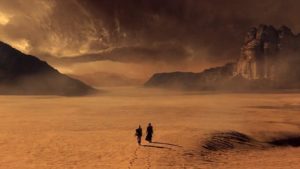 Going back and watching the two-part premiere/pilot after watching the whole season was a surprising venture. It has a very different feel than the rest of the show and immediately everything seems sharper and tighter. Okay, maybe not immediately. We get a truly terrible scene only included for the purpose of exposition. Burnham and Georgiou walk across a desert planet, saying things like “you’ve been under my command for seven years now” and making sure to call one another by their first name, last name and rank at different points. It’s really clumsy, awkward and unnatural and a mark of the bad writing to come. But it doesn’t come yet. The desert sequence was written by Akiva Goldsman, you know, the Batman and Robin and Transformers writer, and was included once Bryan Fuller had left. Fuller is responsible for the rest of the episode and I’d forgotten just how good the rest was.
Going back and watching the two-part premiere/pilot after watching the whole season was a surprising venture. It has a very different feel than the rest of the show and immediately everything seems sharper and tighter. Okay, maybe not immediately. We get a truly terrible scene only included for the purpose of exposition. Burnham and Georgiou walk across a desert planet, saying things like “you’ve been under my command for seven years now” and making sure to call one another by their first name, last name and rank at different points. It’s really clumsy, awkward and unnatural and a mark of the bad writing to come. But it doesn’t come yet. The desert sequence was written by Akiva Goldsman, you know, the Batman and Robin and Transformers writer, and was included once Bryan Fuller had left. Fuller is responsible for the rest of the episode and I’d forgotten just how good the rest was.
The two-part premiere just works. I won’t be recapping the plot of the show so if that’s what your looking for you’d best go somewhere else but I will say that I really like the story the premiere sets up. A war with the Klingons over the interpretation that the Federation suffocates cultures rather than helping them thrive, an officer who makes a bad call and feels guilty for the start of the war, propelling her on a quest for redemption and seeing the captain, crew and ship perish makes you feel the cost of war. But away from the broad strokes, it’s the little details that makes the episode succeed. Everything has thought put into it, every action feels meaningful. At one-point, Saru exits the captain’s chair as soon as Burnham enters the bridge, wanting to relinquish command and the responsibility that comes with it as soon as possible. That level of detail, character or otherwise, is missing from the rest of the season. The crew dynamic on the Shenzhou is also well executed, better in these two episodes than the Discovery will manage in its thirteen. There’s a friendly competitiveness that I forgot about with crew members always turning to smile at one another. Thinking about it, I think I would have preferred Star Trek: Shenzhou.
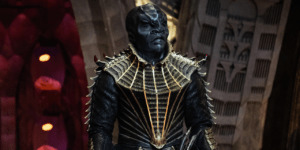 The Klingon T’Kuvma is the primary antagonist of the pilot and he’s a really interesting character. He’s an outcast, beaten and ostracised, who finds solace in Klingon culture and heritage, eventually becoming an extremist with the goal to unite all 24 Klingon houses using war with the Federation as a way to do so. He does so for reasons both selfish and selfless. He wants to regain his honour and standing in the murderous Klingon high society but also to protect his beloved culture and history from the ever-growing Federation. And then he dies. It didn’t seem like an issue on my first watch because I thought his martyrdom would be the catalyst for more interesting drama but now, on rewatch, I wish he had survived and taken Voq’s role for the rest of the season. Also, I was shocked how little L’Rell had to do in the premiere. She barely speaks and just stands in the background. Did they know she would be a major character at this point or did her limited performance impress the writers enough to expand her role?
The Klingon T’Kuvma is the primary antagonist of the pilot and he’s a really interesting character. He’s an outcast, beaten and ostracised, who finds solace in Klingon culture and heritage, eventually becoming an extremist with the goal to unite all 24 Klingon houses using war with the Federation as a way to do so. He does so for reasons both selfish and selfless. He wants to regain his honour and standing in the murderous Klingon high society but also to protect his beloved culture and history from the ever-growing Federation. And then he dies. It didn’t seem like an issue on my first watch because I thought his martyrdom would be the catalyst for more interesting drama but now, on rewatch, I wish he had survived and taken Voq’s role for the rest of the season. Also, I was shocked how little L’Rell had to do in the premiere. She barely speaks and just stands in the background. Did they know she would be a major character at this point or did her limited performance impress the writers enough to expand her role?
The conflict between Burnham’s human heritage and her Vulcan upbringing takes centre stage in the premiere but sadly is pushed to the background for the remainder of the season. Burnham’s actions are of two minds: logic and revenge, Vulcan and human. Both make her cold and calculating which leads to her bold decisions but she fails to recognise that there is another way; the Starfleet way. Her human side will go on to trump her Vulcan conditioning in the end but she starts off much more Vulcan than human, from that fateful nerve pitch to ‘the Vulcan Hello’. Is Burnham wrong in her actions or was war inevitable however she responded? She’s blamed for the war but was almost firing on the Klingons by way of mutiny her crime, or was killing T’Kuvma and destroying the chance for peace? The show is confused on this but either way it sets up an intriguing arc of guilt and redemption.
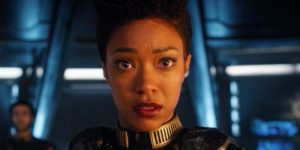 Michael remains an interesting character for the rest of the season, just less so. For someone raised a Vulcan I think she gets emotional a bit too often. I like Sonequa Martin-Green but she does that wide tear-filled eyed look far too often. Thinking about it, it would have been cool if they went the Luv route from Blade Runner 2049 where the character is so emotionally messed up (Burnham would be from the contrasting human and Vulcan mindsets) that she struggles to control emotions and just randomly starts crying or laughing. The Burnham we get isn’t necessarily likable either; she flat out ignores Tilly in their first meeting. But that’s not just Burnham’s problem in episode three.
Michael remains an interesting character for the rest of the season, just less so. For someone raised a Vulcan I think she gets emotional a bit too often. I like Sonequa Martin-Green but she does that wide tear-filled eyed look far too often. Thinking about it, it would have been cool if they went the Luv route from Blade Runner 2049 where the character is so emotionally messed up (Burnham would be from the contrasting human and Vulcan mindsets) that she struggles to control emotions and just randomly starts crying or laughing. The Burnham we get isn’t necessarily likable either; she flat out ignores Tilly in their first meeting. But that’s not just Burnham’s problem in episode three.
In the third episode, a sort-of second pilot introducing us to the Discovery and her crew, the characters are more hyped up versions of what they will ultimately become. This is to immediately and unimaginatively tell us who these characters are. Tilly is extra hyperactive, Burnham is extra dour and Stamets is extra grumpy. It’s characterisation shorthand, putting across information with as little effort as possible. We understand the characters but they are so extreme and regimented that they aren’t likable. Quite the opposite in fact.
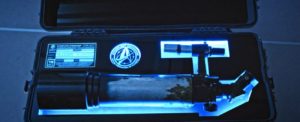 The third episode is a big step down in terms of overall quality, not only in the wider storytelling but in the little details too. Why does the shuttlecraft pilot die at the beginning? Was that part of Lorca’s plan? In the next episode, how does Starfleet have the telescope from the Shenzhou when the ship is still adrift and surrounded by Klingons? How come Admiral Cornwell says that Discovery is the only ship in range for a mission and then, just as the mission starts, she turns up in a shuttlecraft that must have come from another ship? The details are off and there are so many gaps in logic, let alone canon. Just when I’m enjoying something another thing that makes no sense will happen. It’s frustrating. Are the inconsistencies the product of a troubled and rushed production or just plain simple bad writing?
The third episode is a big step down in terms of overall quality, not only in the wider storytelling but in the little details too. Why does the shuttlecraft pilot die at the beginning? Was that part of Lorca’s plan? In the next episode, how does Starfleet have the telescope from the Shenzhou when the ship is still adrift and surrounded by Klingons? How come Admiral Cornwell says that Discovery is the only ship in range for a mission and then, just as the mission starts, she turns up in a shuttlecraft that must have come from another ship? The details are off and there are so many gaps in logic, let alone canon. Just when I’m enjoying something another thing that makes no sense will happen. It’s frustrating. Are the inconsistencies the product of a troubled and rushed production or just plain simple bad writing?
My favourite part of the third episode is Lorca and, even for how obvious it becomes as we get later into the season, I do think knowing of the upcoming twist enhances my enjoyment of him in the early episodes, and I say that as a fan of him anyway. You can see that he takes joy in being mysterious and enigmatic, hiding under Starfleet’s nose, and Jason Isaacs is just as much a joy to watch and is clearly having fun. Upon rewatch you do pick up on some of the clues along the way. When discussing the Tardigrade, Lorca notes “he has a natural aversion to light. Just like me” which gives away that the issue with his eyes is natural rather than a war injury like he says. I like him having to hide his annoyance at having to help the Gormagander, with him only doing so to maintain his cover and his aversion to putting Burnham on missions isn’t due to lack of trust but rather he needs her alive when he goes home to the Mirror Universe.
During the rewatch it struck me how strange it was that Landry, the Discovery’s first security chief, didn’t also come from the Mirror Universe with Lorca. It makes so much sense and I wouldn’t be surprised if that was the original plan when they shot the early episodes and only changed it later on. Why else would Landry be so eager to please Lorca, be unnecessarily violent and antagonistic and die stupidly?
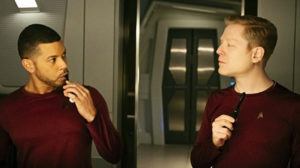 Out of all the characters, Stamets gets off to the worst start. He’s antagonistic and very unlikable in his debut and should have already been the quirky character we see him start to become in just the next episode. Sure, he’s angry at Lorca for using his scientific breakthroughs for war but he’s explaining all this information to a character he doesn’t like in Michael, making him come across doubly angry. All of this explanation should have taken place in a scene with Culber, a character he actually likes and has chemistry with. It’s not until the scenes with him that we get a sense of Stamets as a character. The teeth-brushing scene is one of the show’s best and never in Star Trek has a relationship seemed so natural so quickly. I find it very endearing and then the scene ends on a genuinely disturbing image which really creeped me out the first time I watched it. Stamets by himself gets better later in the season when he gets a lot weirder, the spore drive unlocking new parts of his personality as well as expanding his relationship with time, space and other dimensions.
Out of all the characters, Stamets gets off to the worst start. He’s antagonistic and very unlikable in his debut and should have already been the quirky character we see him start to become in just the next episode. Sure, he’s angry at Lorca for using his scientific breakthroughs for war but he’s explaining all this information to a character he doesn’t like in Michael, making him come across doubly angry. All of this explanation should have taken place in a scene with Culber, a character he actually likes and has chemistry with. It’s not until the scenes with him that we get a sense of Stamets as a character. The teeth-brushing scene is one of the show’s best and never in Star Trek has a relationship seemed so natural so quickly. I find it very endearing and then the scene ends on a genuinely disturbing image which really creeped me out the first time I watched it. Stamets by himself gets better later in the season when he gets a lot weirder, the spore drive unlocking new parts of his personality as well as expanding his relationship with time, space and other dimensions.
I guess I should comment on the science of the show itself with the spore drive, massive Tardigrades, the mycelial network and teleportation by mushroom. It’s so very weird but I think it does work, even if the writers themselves struggle to explain it, so upon rewatch I think I’m okay with it. Or I’ve just accepted it because I’m used to it. However, the mushroom heaven we see later in the season I have a big problem with but I’ll discuss that in part 2. Oh boy, I’ll discuss it.
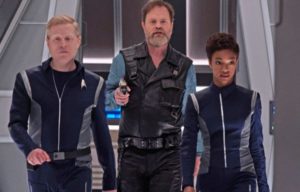 Overall, I think episodes 4, 5, 6 and 7 are pretty good and nail the balance between serialised storytelling and standalone episodes. They feel contained enough to be their own little stories while also feeding into the overall serialised narrative. The seventh episode, Magic to Make the Sanest Man Go Mad, is the standout episode of the season and the one that gets the balance correct the most. It sees Harry Mudd create a time loop in order to discover the secrets of Discovery’s spore drive while Burnham and Tyler fall in love. It’s by far the most fun the show ever is, feels like classic Star Trek (copying the concept of one of TNG’s best episodes certainly helps) and serves the characters like no other episode. Without it the Burnham/Tyler relationship would fall completely flat and even with it that relationship is one of the weaker aspects of the season. I’ll get around to discussing Tyler in the next article when the big ‘twist’ happens.
Overall, I think episodes 4, 5, 6 and 7 are pretty good and nail the balance between serialised storytelling and standalone episodes. They feel contained enough to be their own little stories while also feeding into the overall serialised narrative. The seventh episode, Magic to Make the Sanest Man Go Mad, is the standout episode of the season and the one that gets the balance correct the most. It sees Harry Mudd create a time loop in order to discover the secrets of Discovery’s spore drive while Burnham and Tyler fall in love. It’s by far the most fun the show ever is, feels like classic Star Trek (copying the concept of one of TNG’s best episodes certainly helps) and serves the characters like no other episode. Without it the Burnham/Tyler relationship would fall completely flat and even with it that relationship is one of the weaker aspects of the season. I’ll get around to discussing Tyler in the next article when the big ‘twist’ happens.
The one thing I think everyone can agree on when it comes to Discovery is that Saru is great. He just is. The idea of a prey race, a biologically-determined scaredy-cat with super strength, is interesting enough, let alone when he’s second-in-command of a warship during a war that’s captained by a warlord. Everything we get with him is fascinating (except for episode 8 which I’ll get to in a few minutes) but we just don’t get enough. It’s a great concept, and what’s there is good, but it’s under-explored. I want a lot more of him in season 2. He’s probably the most ‘Star Trek’ character in the whole show, at least alien-wise because I could make an argument for Culber, a character I’ll discuss next time when he’s stupidly taken away from us.
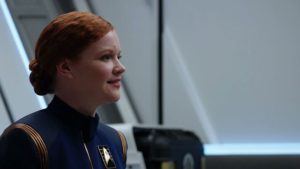 Tilly is… consistent. Like every character, as I’ve previously discussed, she gets off to a bit of a rough start due to some truly lazy writing. In her first episode she literally says “I have this character flaw…” and “Here’s a thing most people don’t know about me…”. That’s just terrible writing when a character is literally telling another, and the audience, what their personality and character traits are. I didn’t like her at all at the beginning of the show, because of said writing and how clear it was that she’s intended to be the antithesis of Michael to combat her dourness, but now I’ve grown to really enjoy Tilly’s presence in the show. I admit, I get sucked into her excitement as the season progresses. On rewatch you pick up on just how much they push the Tilly wanting to be a captain angle. That’s her goal from her first episode and it’s overplayed tenfold. Personally, I don’t think she’s captain material but I’m sure by the end of season 7 she’ll be the captain and the writers will pat themselves on the back about how they seeded it so early.
Tilly is… consistent. Like every character, as I’ve previously discussed, she gets off to a bit of a rough start due to some truly lazy writing. In her first episode she literally says “I have this character flaw…” and “Here’s a thing most people don’t know about me…”. That’s just terrible writing when a character is literally telling another, and the audience, what their personality and character traits are. I didn’t like her at all at the beginning of the show, because of said writing and how clear it was that she’s intended to be the antithesis of Michael to combat her dourness, but now I’ve grown to really enjoy Tilly’s presence in the show. I admit, I get sucked into her excitement as the season progresses. On rewatch you pick up on just how much they push the Tilly wanting to be a captain angle. That’s her goal from her first episode and it’s overplayed tenfold. Personally, I don’t think she’s captain material but I’m sure by the end of season 7 she’ll be the captain and the writers will pat themselves on the back about how they seeded it so early.
On rewatch it was confirmed to me that the two things that I was most concerned about going into this show turned out to be my two favourite things from it. The first being Harry Mudd. That incredibly camp space-pimp turned king-of-the-androids from those 2 (not very good) episodes of The Original Series?! No way that’ll work! And yet, it does. He’s a much quieter and less enthusiastic presence than he is 10 years later in TOS but he still brings a sense of fun and quirk that works with Discovery’s much darker tone. He’s a great character to bring in to comment on the arrogance of Starfleet, much like Quark in Deep Space Nine, and it’s a TOS reference that works unlike Lorca having a tribble on his desk for some reason.
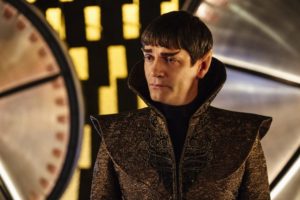 My second concern-turned-strength of the show is Sarek and how prominently the series changes/expands upon his life. Burnham being his adoptive daughter builds on his attempt to bring humans and Vulcans closer together, an aspect of his character that has always been there with his human wife and half-breed son. I love what the legacy of having Burnham in his life means and how it connects to the canon that we already know. It fits in snugly unlike a lot of other stuff the season tries to alter in the canon. The Vulcans will only accept one of his “not-quite-Vulcans” into their ranks and he picks Spock over Burnham. However, when the time comes, Spock refuses and goes into Starfleet while Burnham would have loved to join the Vulcan Science Academy but isn’t allowed. This expands on the reason for the strained relationship between Sarek and Spock in TOS in a fascinating way. Sarek’s anger at Spock is actually his anger at himself for putting his son before his daughter. One thing I’m still unsure on is that Burnham shares Sarek’s Katra after a near-death experience in her youth. With what we know this has to end during Discovery, right? Does that mean Burnham has to die? In a similar vein to being worried about Sarek, I’m terrified the writers are going to mess up Spock in season 2. But who knows, maybe he’ll turn out to be one of my favourite things like Sarek was in season 1.
My second concern-turned-strength of the show is Sarek and how prominently the series changes/expands upon his life. Burnham being his adoptive daughter builds on his attempt to bring humans and Vulcans closer together, an aspect of his character that has always been there with his human wife and half-breed son. I love what the legacy of having Burnham in his life means and how it connects to the canon that we already know. It fits in snugly unlike a lot of other stuff the season tries to alter in the canon. The Vulcans will only accept one of his “not-quite-Vulcans” into their ranks and he picks Spock over Burnham. However, when the time comes, Spock refuses and goes into Starfleet while Burnham would have loved to join the Vulcan Science Academy but isn’t allowed. This expands on the reason for the strained relationship between Sarek and Spock in TOS in a fascinating way. Sarek’s anger at Spock is actually his anger at himself for putting his son before his daughter. One thing I’m still unsure on is that Burnham shares Sarek’s Katra after a near-death experience in her youth. With what we know this has to end during Discovery, right? Does that mean Burnham has to die? In a similar vein to being worried about Sarek, I’m terrified the writers are going to mess up Spock in season 2. But who knows, maybe he’ll turn out to be one of my favourite things like Sarek was in season 1.
The eighth episode, Si Vis Pacem Para Bellum, is my least favourite of the season. On the surface it’s just the most boring but looking deeper it fails in what it was trying to do. They try to add a little bite to Saru’s character which fails miserably with his intentions being very confused, and it’s the one that tries most to be like a classic Star Trek episode with an alien of the week and a landing party beaming down to a planet. That style of storytelling doesn’t gel with the tone of the show, especially with the oppressively serialised Klingon B-plot. Overall, I have mixed feelings on the Klingon scenes. I admire them, with the atmosphere and immersion they aim to create, but in practice it doesn’t quite work. The speech is too funny sounding and slow. I finish reading the subtitles before the character is halfway through the sentence which makes my attention wander.
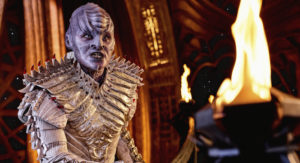
That brings us to L’Rell, a character who barely appears in the premiere – which makes me think she wasn’t planned to be a main character going forward – but becomes a very big deal. I think Mary Chieffo is fantastic and probably the best Klingon performer after Chris Obi as T’Kuvma and I wouldn’t be surprised if the producers took note of her performance and then decided to make her a key character. Whereas I felt the Captain Tilly setup was overdone, I like the subtle foreshadowing of L’Rell being the Klingon Leader in the season finale. In the fourth episode she states “I do not want the mantle of leadership. Standing behind you, I am free to move”. Given this, I’m anticipating seeing her deal with her new role in the second season.
On rewatch I still don’t know what to think of L’Rell’s motives. Does she care for her people? Voq? Or just herself? I don’t think the writers know, but, unlike with some other characters, I actually don’t think that matters too much. She does however, just by what the writers do with her, destroy any chance of the Voq reveal being at all surprising. Tyler says he’s been L’Rell’s captive since the Battle of the Binary Stars but we know from a previous episode that she had only just gotten off of the sarcophagus ship recently so that couldn’t be the case. L’Rell’s presence gives it away from the start; Tyler can’t be telling the truth. That’s some pretty poor plotting from the writers. I think her character should never have been on the prison ship. The PTSD and rape storyline would have been changed but it would have been worth it to distance her from Voq, making the twist less predictable.
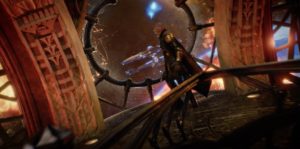 I’ll conclude this part with the end of the first ‘chapter’ of the season and, overall, the mid-season finale is pretty great. Sure, it’s fast paced to the point of being rushed but that’s nothing new. Burnham gets a little bit of solace (a quantum if you will) and takes a big step towards repenting for her crimes, Tyler gets a bit more interesting, Stamets’ condition comes to a head and the crew unite in a way they haven’t before. It could have been tighter and stronger but I think everything works as it is. In terms of the season overall, knowing where it’s going, I feel like Kol and the sarcophagus ship should have survived until the season finale. In fact, this plot should have been moved until after the Mirror Universe arc because this works better as a season finale than the one we ultimately get. And so, we leave our crew in some unknown dimension until next time. Like every twist in the show we knew exactly where it was going, mainly because it’s so obvious but partly because Jonathan Frakes had let it slip that the show was going to the Mirror Universe before it had even started airing.
I’ll conclude this part with the end of the first ‘chapter’ of the season and, overall, the mid-season finale is pretty great. Sure, it’s fast paced to the point of being rushed but that’s nothing new. Burnham gets a little bit of solace (a quantum if you will) and takes a big step towards repenting for her crimes, Tyler gets a bit more interesting, Stamets’ condition comes to a head and the crew unite in a way they haven’t before. It could have been tighter and stronger but I think everything works as it is. In terms of the season overall, knowing where it’s going, I feel like Kol and the sarcophagus ship should have survived until the season finale. In fact, this plot should have been moved until after the Mirror Universe arc because this works better as a season finale than the one we ultimately get. And so, we leave our crew in some unknown dimension until next time. Like every twist in the show we knew exactly where it was going, mainly because it’s so obvious but partly because Jonathan Frakes had let it slip that the show was going to the Mirror Universe before it had even started airing.
Mini-Discoveries/random thoughts I couldn’t find a place for in the article:
- I know this is a bit silly but I don’t like the aspect ratio. It’s 2:1, the same as the new series of Doctor Who, and leaves very little black bars at the top and bottom of the screen. Either go 16:9 or full screen 2.35:1, not somewhere in the middle. Although to be honest I struggle to think of Star Trek in anything but 4:3.
- I think the idea behind the Klingon sarcophagus ship is great. The dead being used as armour feels very Klingon and I like it as a representation of the Black Fleet. As for the cloaking device that was developed separately from the Romulans? I still find that problematic.
- As an Enterprise fan (my second favourite Trek series) I enjoy that there has been limited communication between humans and Klingons for a century. It confirms that Archer’s actions had big repercussions.
- Vulcan extremists, who want Vulcan to leave the Federation and stop relations with lesser races, are a neat idea which disappears very soon from the show. I’d love to see that further developed in future seasons.
- I think the breath scans are just stupid. They disappear after their first episode so I guess everyone else did too.
- The sister ship of the Discovery is called the Glenn. That’s like if a person called Blade had a brother called Bob.
- I hate that Elon Musk gets mentioned in the same breath as Zephram Cochrane and the Wright Brothers. So, he’s a big deal in Star Trek’s alternate present? Something tells me if the show had come out a year later they would have removed the mention of Musk. If only.
- I don’t hate the F-bomb but I don’t love it either. Considering I was very much against such “colourful metaphors” in Star Trek before it happened, I’d say my indifference is a win for the show.
- Remember when the show first aired and we weren’t sure if Admiral Cornwell died or not in her pretend/is it pretend fight with L’Rell and they played if off like she was dead and wouldn’t be returning to the show. What a mess that turned into.
- I don’t like that Burnham says the “needs of the many…” phrase. Modern Star Trek seems to think that’s a Vulcan saying but it’s not! It was specifically a Spock thing that has now been wrongly appropriated to the whole species.
And with that, Part 1 of my revisit of Discovery’s debut season is complete. In two weeks, I’ll post the second and final part, ready for the upcoming second season. What did you think of season 1 of Discovery and what do make of my thoughts? Let me know in the comments and geek out with me about TV, movies and video-games on Twitter @kylebrrtt.





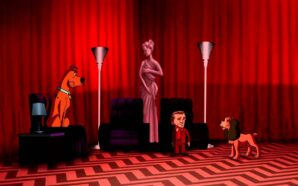
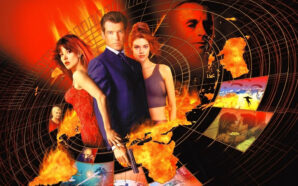
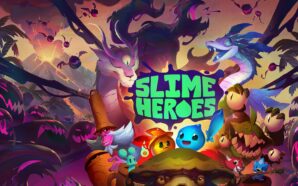
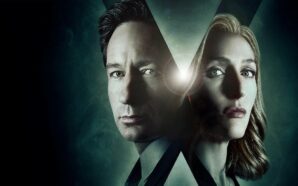
Nice work Kyle!
Thanks Adam!
A good read Kyle, and it mirrors some of my concerns with the show and worries for the second season. I think I know what you’ll be saying about the second half of the season already.
Is that because you’ve already read the draft of part 2? No cheating, Ben!
Ha! I could but no, you’re right that would be cheating.
Incredible really how fast the “Elon Musk will be remembered as a genius one of the most important figures in human history” thing managed to date itself